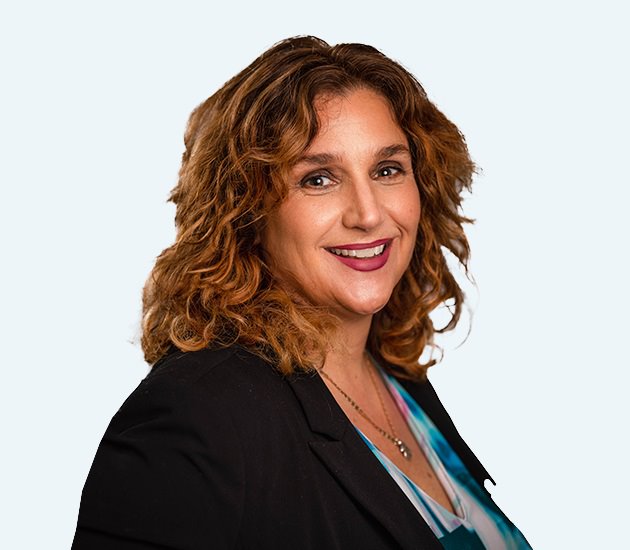STUDENT VISA ATTORNEYS WITH 50 YEARS OF EXPERIENCE
With five decades of experience in immigration and thousands of success stories, our dedicated student visa attorneys at Spar & Bernstein have helped countless international students overcome visa-related challenges and successfully pursue their education in the United States.
WHY HIRE SPAR & BERNSTEIN FOR STUDENT VISAS?
If you are planning to study at a U.S. college or university or enroll in a language training or other educational program, our knowledgeable immigration team at The Law Offices of Spar & Bernstein is here to help.
We will provide personalized guidance, address your concerns, help you file your student visa application and prepare you for your interview. From the beginning steps to the moment you receive your visa, we’ll be by your side every step of the way.
TYPES OF US STUDENT VISAS
Student visas are nonimmigrant visas that allow you to pursue your educational goals in the U.S.
There are three types of student visas:
- F-1 Visa: The most common type of student visa, the F-1 visa is granted to international students who plan to pursue academic programs at accredited U.S. colleges, academic high schools, universities, conservatories, seminaries or language training programs.
- M-1 Visa: The M-1 visa is granted to students who are planning to pursue vocational or non-academic programs at U.S. institutions, such as technical schools.
- J-1 Visa: The J-1 visa is granted to exchange visitors who are participating in approved exchange programs, such as educational, cultural and research-based exchange programs sponsored by schools, organizations or government entities. Exchange visitors can include students, trainees, teachers, scholars, professors and others.
ELIGIBILITY FOR F-1 & M-1 STUDENT VISAS (FULL-TIME STUDENTS)
To be eligible for a F-1 or M-1 student visa category, you must:
- Be enrolled as a full-time student in a language-learning, vocation or academic educational program
- Have selected a school approved by the Student and Exchange Visitors Program, Immigration & Customs Enforcement
- Be proficient in English or be enrolled in classes that will make you proficient in English
- Have adequate finances to support yourself during the entire length of your studies
- Keep a residence abroad with no intention of giving it up
HOW TO APPLY FOR A STUDENT VISA AS A FULL-TIME STUDENT
To apply for a full-time student visa (F-1 or M-1 student visa):
1. Obtain Form I-20 from a U.S. educational institution
Before applying for a F-1 or M-1 student visa, you must first receive Form I-20, which proves that you are enrolled in a U.S. college, university or other educational institution.
2. Pay the I-901 SEVIS fee
Visit fmjfee.com to pay your I-901 Student and Exchange Visitor Information System (SEVIS) fee, which supports the administration of the visa program and the maintenance of student records.
3. Submit the online nonimmigrant visa application (Form DS-160)
Complete Form DS-160, Online Nonimmigrant Visa application by listing your personal information, travel plans and other relevant details. Form DS-160 is used to determine your eligibility for a student visa.
4. Schedule a visa interview
Once you complete Form DS-160, schedule an appointment for a visa interview at the U.S. Embassy or Consulate in your home country.
5. Pay the visa application fee
This fee is meant to cover the cost of application processing along with your visa interview.
6. Attend the visa interview
When your scheduled date arrives, go to the U.S. Embassy or Consulate for your student visa interview. Make sure you have all the required documents with you (more on that below).
DOCUMENTS TO BRING TO YOUR F-1/M-1 STUDENT VISA INTERVIEW
The documents you need to bring to your F-1/M-1 student visa interview at the Embassy or Consulate include:
- Form I-20 from the U.S. educational institution
- Form DS-160 — the visa application form’s confirmation page
- The receipt from the visa application fee
- The SEVIS fee receipt
- A valid passport
- A photo
- Any additional information that the Embassy or Consulate may require, including financial evidence, a diploma or academic transcripts
HOW TO APPLY FOR A J-1 VISA
To apply for a J-1 visa:
- Find an exchange visitor program: Identify and secure a sponsorship from an authorized Exchange Visitor Program (EVP) that offers the type of exchange program you want to participate in.
- Submit Form DS-2019: Once accepted into an EVP, the sponsoring organization will provide you with Form DS-2019, which is the official document that certifies your eligibility for the J-1 visa program.
- Pay the SEVIS fee: This fee is meant to help maintain student records and the administration of the visa program.
- Complete the online nonimmigrant visa application (Form DS-160): In this application, you will provide detailed information about your study plans.
- Schedule an interview: After submitting your application online, schedule your visa interview with the U.S. Embassy or Consulate.
- Pay the fee for your visa application: The application fee is S160.
- Attend the interview at the Embassy or Consulate: Bring all necessary documents with you to the interview.
DOCUMENTS TO BRING TO YOUR J-1 VISA INTERVIEW
The documents you need to bring with you to your J-1 student visa interview at the Embassy or Consulate include:
- Form DS-2019 from the U.S. sponsoring organization
- Form DS-160 — the visa application form’s confirmation page
- The receipt from the visa application fee
- The SEVIS fee receipt
- A valid passport
- A photo
- Any additional information related to the educational program or required by the Embassy or Consulate
Experienced Student Visa Lawyers Fighting for You
Don’t wait. Solve your student visa problems now.
- 65+ years of experience in all areas of immigration law
- Helped 100,000+ people to obtain U.S. immigration benefits
- Citizenship, Student Visa, Family Immigration, Waivers & more
FAQS ABOUT STUDENT VISAS
Is There A Yearly Limit On Student Visas?
No, there is no limit on the number of student visas that can be approved each year.
When Should I Apply For My Student Visa?
You should apply for your student visa a minimum of 120 days before the start of your education program.
How Long Are Student Visa Appointment Wait Times?
The student visa appointment wait times depend on the U.S. Embassy or Consulate where you are applying. To check the wait time for the Embassy or Consulate in your country, visit travel.state.gov.
Will I Need To Provide Biometric Information During My Student Visa Interview?
Yes, typically you will be asked to provide biometric information during your visa interview. However, depending on your location, you may be required to provide biometric information at a designated application support center instead, before or after your visa interview.
What Questions Will They Ask Me At My Student Visa Interview?
The questions you will be asked at your student visa interview typically revolve around:
- Your educational plans
- Why you decided to study in the U.S.
- Your ties to your home country
- How you will pay for your studies during the entire educational program
- Your plans after you finish your studies
How Long Are The Student Visa Processing Times?
Student visa processing times can vary, so it’s important to check with the Embassy or Consulate for estimated processing times.
Can I Work While In The U.S. On A Student Visa?
Yes, you are typically permitted to work if you are in the U.S. on a student visa. However, if you are an F-1 visa holder, you are not permitted to work longer than 20 hours during the school year and you can work full-time only during school breaks.
Some F-1 students may also be eligible for off-campus employment through Optional Practical Training (OPT) after completing their studies.
J-1 students may have similar opportunities, depending on the terms of their program.
Talk to our student visa attorneys at Spar & Bernstein to find out what your work options are.
How Can The Student Visa Lawyers At Spar & Bernstein Help Me With My Visa Application?
Our experienced student visa lawyers at Spar & Bernstein will provide expert guidance throughout the application process.
We will help you collect the documents you need, file your application, prepare you for your visa interview and address any concerns or issues that may arise along the way.
Can I Travel Within The U.S. On A Student Visa?
Yes, as a student visa holder, you are typically allowed to travel within the U.S. Note that you need to have a valid visa and passport at all times and be prepared to show identification and immigration documents during your travels.
Can I Travel Outside Of The U.S. During My Studies?
Yes, you can travel outside the U.S. during your studies. However, you should have a valid visa, passport and proper travel authorization, such as a valid travel signature on your I-20 or DS-2019.
Can I Change My Visa Status From A Student Visa To Another Visa Category?
In some cases, it is possible to change your visa status from a student visa to another category. Because the eligibility criteria and process can differ in each unique situation, it’s important to talk to an experienced immigration lawyer.
Schedule a consultation with our team at Spar & Bernstein and we will explain the options and requirements for changing your visa status.
What Will Happen If I Overstay My Student Visa?
Overstaying your student visa can have serious consequences. You may be barred from re-entering the U.S. or face visa restrictions or legal action.
Make sure you maintain your legal status and talk to an immigration attorney if you have overstayed your student visa.
What Can I Do If My Student Visa Application Was Not Approved?
If your student visa was not approved, schedule a consultation with an experienced student visa lawyer who can review your case, determine why your application was denied and address the situation.
Possible options can include appealing the decision, reapplying with additional documentation or considering alternative visa pathways to help you achieve your educational goals in the U.S.
Contact our student visa attorneys at Spar & Bernstein — we will review your case and determine the best route for next steps.
Can I Become Legal if I Overstayed My Student Visa And Have Accrued Unlawful Presence?
If you’ve overstayed your student visa and accrued unlawful presence, your path to becoming legal will depend on various factors. Consult with our immigration attorneys At Spar & Bernstein to explore your options.
Bradford H. Bernstein, a second-generation leader at Law Offices of Spar & Bernstein, P.C., has helped over 100,000 clients with immigration and personal injury issues. Brad joined the firm in 1993, became a partner in 1997, and assumed leadership in 2000 after Harry Spar retired.
View Brad's Bio




